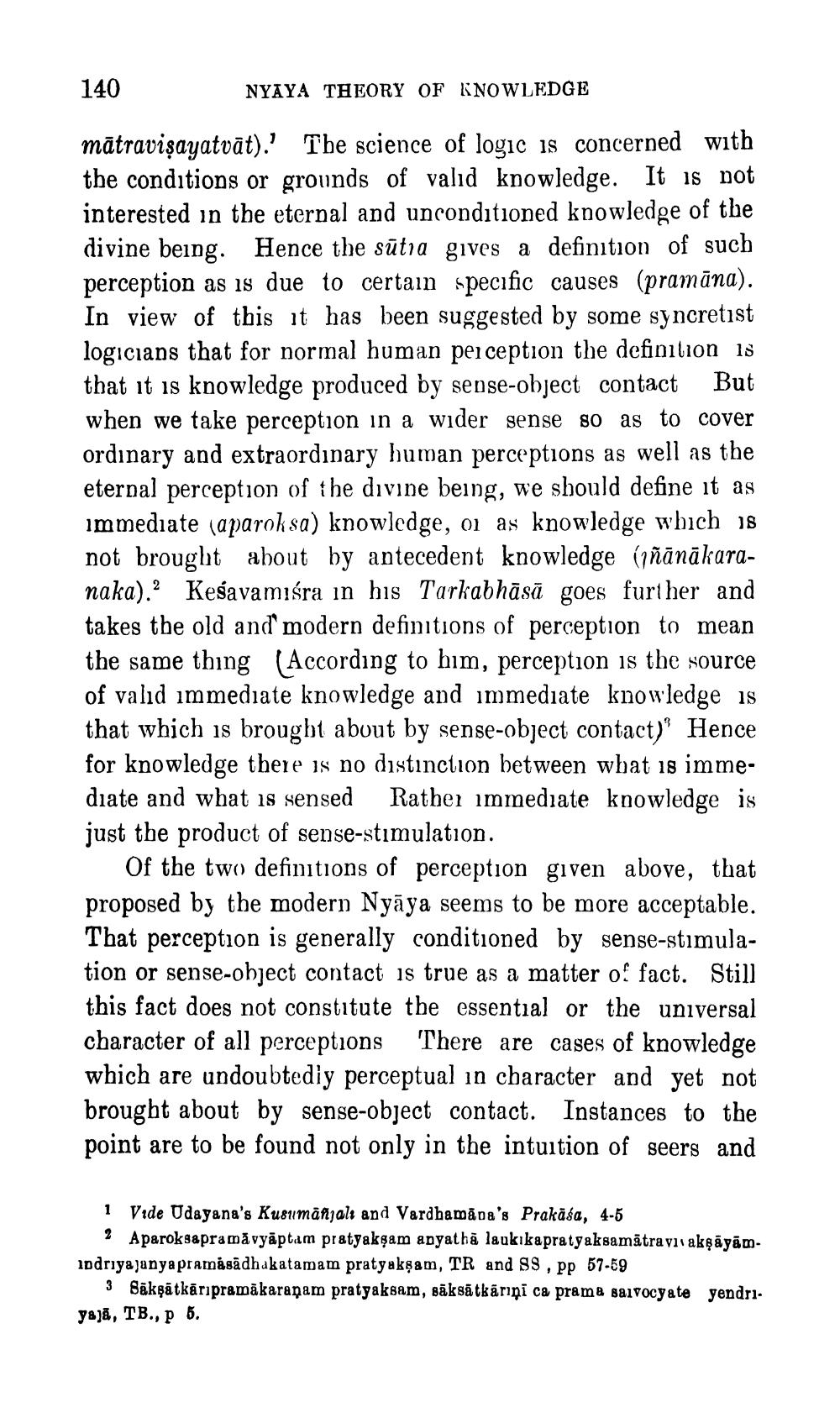________________
140
NYAYA THEORY OF KNOWLEDGE
mātravişayatvāt).' The science of logic is concerned with the conditions or grounds of valid knowledge. It is not interested in the eternal and unconditioned knowledge of the divine being. Hence the sūtia gives a definition of such perception as is due to certain specific causes (pramāna). In view of this it has been suggested by some syncretist logicians that for normal human perception the definition is that it is knowledge produced by sense-object contact But when we take perception in a wider sense so as to cover ordinary and extraordinary human perceptions as well as the eternal perception of the divine being, we should define it as immediate (aparoksa) knowledge, oi as knowledge which is not brought about by antecedent knowledge (jñānākaranaka). Kesavamıśra in his Tarkabhāsā goes further and takes the old and modern definitions of perception to mean the same thing (According to him, perception is the source of valid immediate knowledge and immediate knowledge is that which is brought about by sense-object contact)' Hence for knowledge there is no distinction between what is immediate and what is sensed Rather immediate knowledge is just the product of sense-stimulation.
Of the two definitions of perception given above, that proposed by the modern Nyāya seems to be more acceptable. That perception is generally conditioned by sense-stimulation or sense-object contact is true as a matter of fact. Still this fact does not constitute the essential or the universal character of all perceptions There are cases of knowledge which are undoubtedly perceptual in character and yet not brought about by sense-object contact. Instances to the point are to be found not only in the intuition of seers and
1 Vide Udayana's Kusumängalt and Vardhamana's Prakāśa, 4-5
2 Aparok sapramă vyāptam pratyakşam anyathā laukikapratyaksamätra viiaksāyāmipdriyajunya pramasādhakatamam pratyakşam, TR and 88, pp 57-59
3 Bākşātkāripramākaraṇam pratyaksam, sāksātkāriņi ca prama salvocyate yendri. yajā, TB., p 6.




